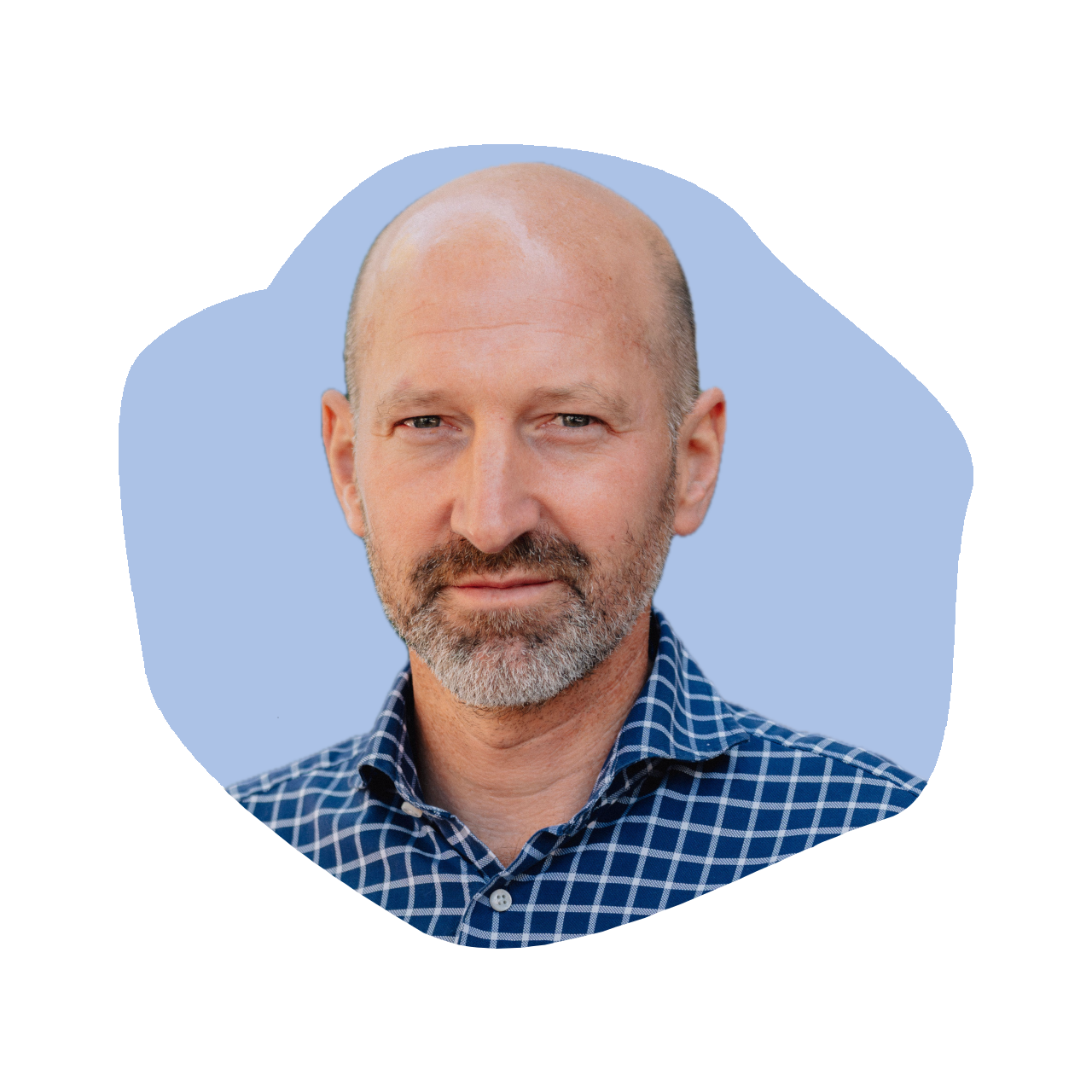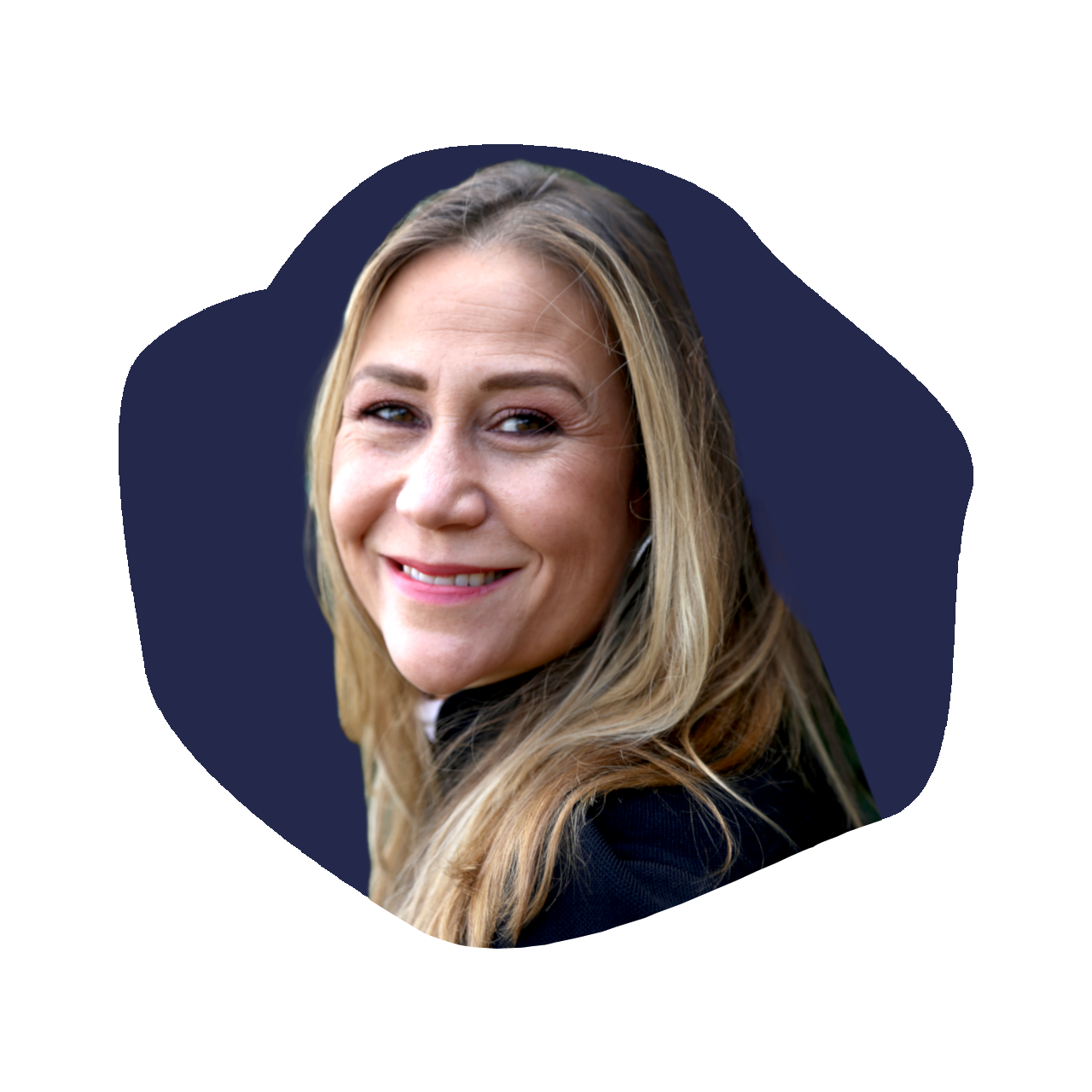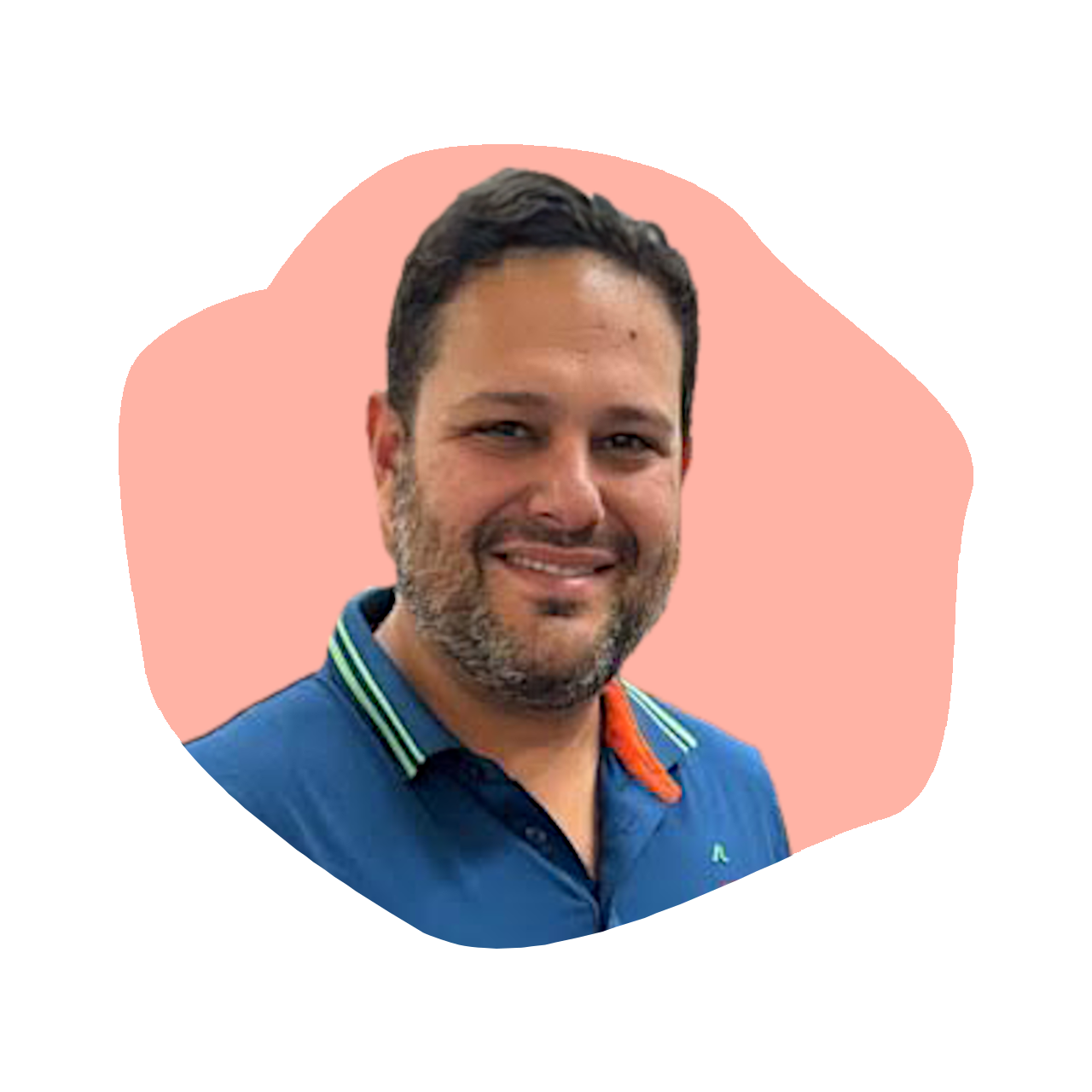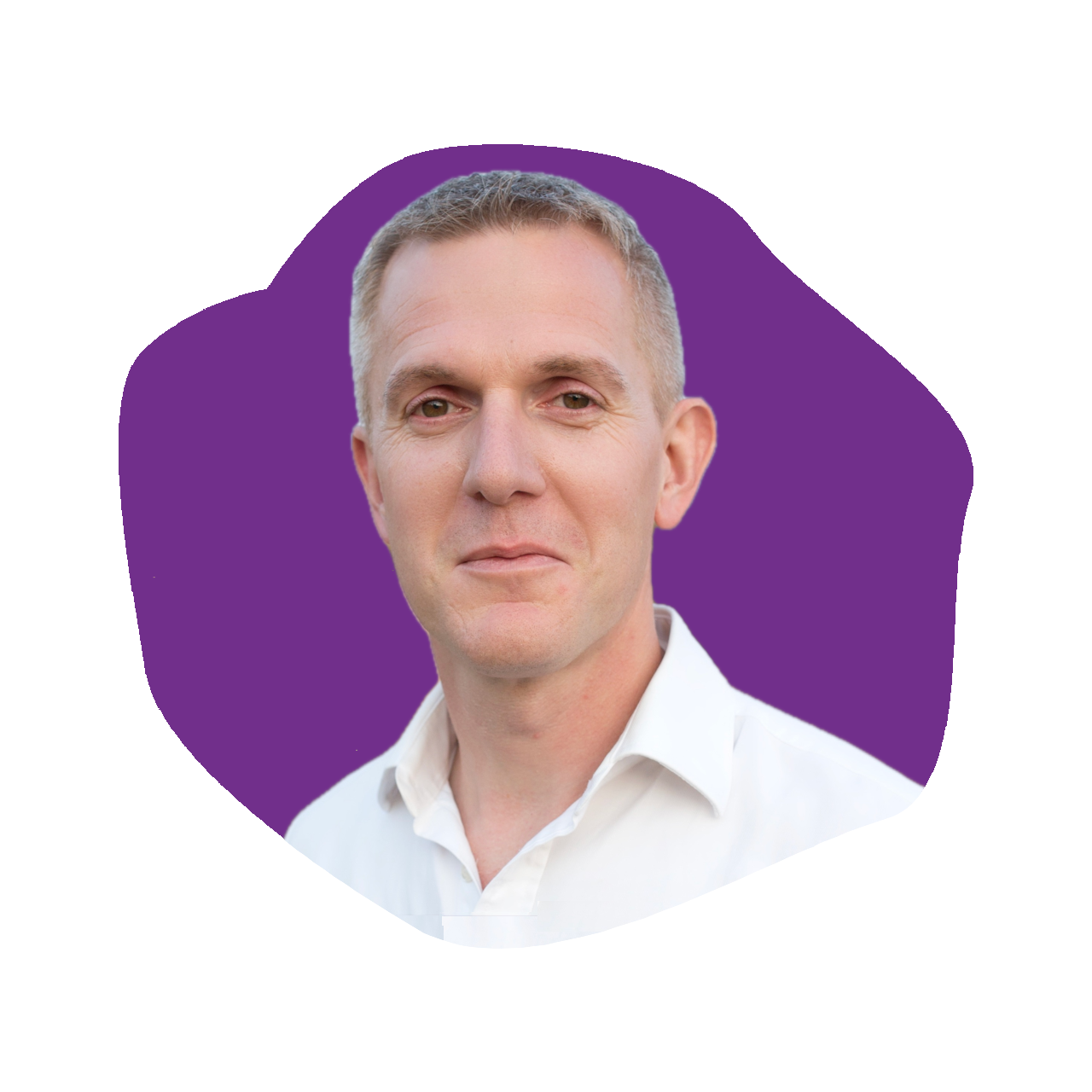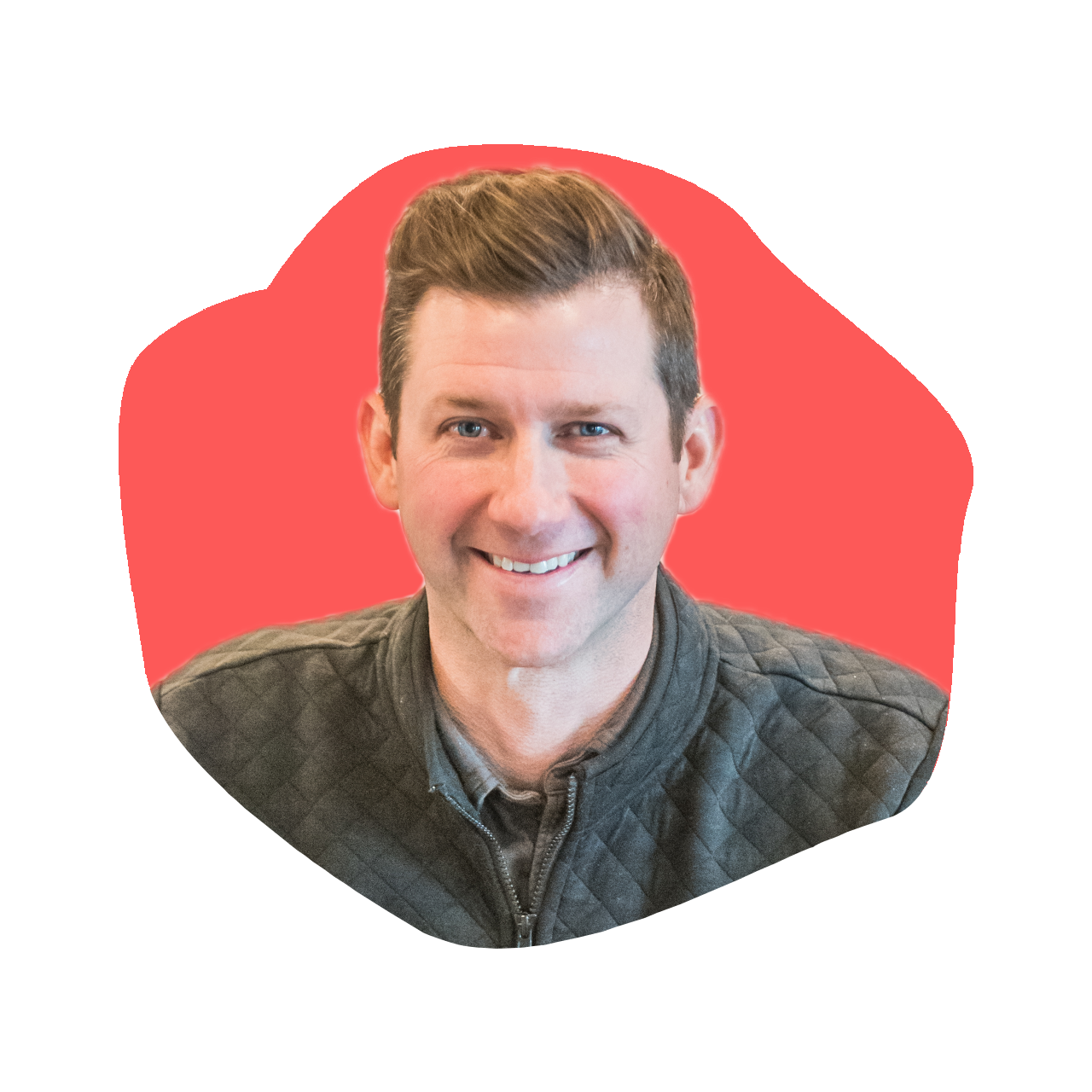Kyle Paradiso – Founder & CEO of Sleepy Bear
Episode 167
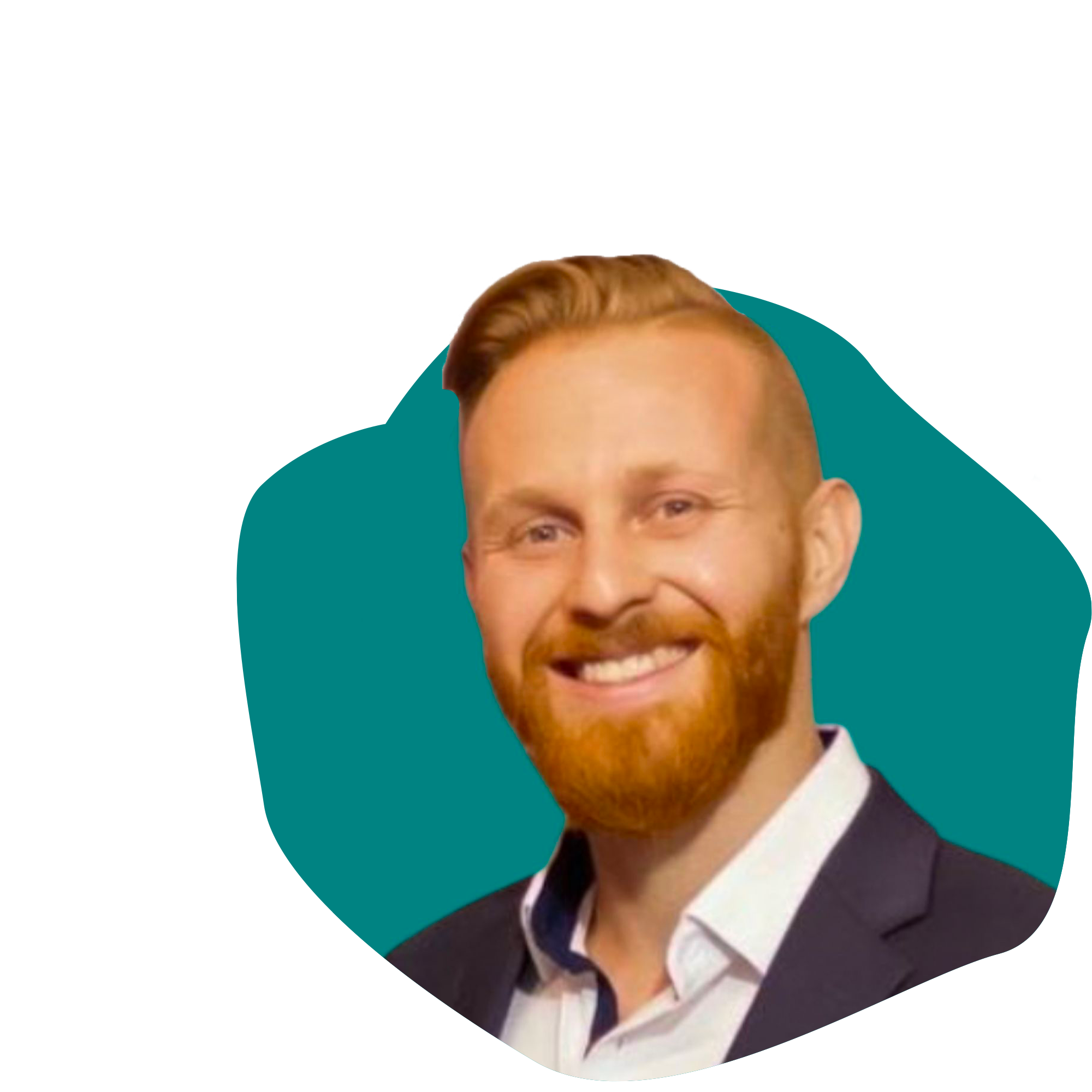
It’s Kyle Paradiso on The Kara Goldin Show! Kyle is the CEO and Co-Founder of Sleepy Bear, a line of CBD- and CBN-formulated gummies that offer a nighttime sleep solution. Listen to how his career path started in the military, but then he pivoted after being forced to retire due to injury and then discovered the benefits of cannabis. Like many of the best entrepreneurs, Kyle solved a problem for himself and has now set out to help people suffering with similar problems. We also talk about the struggles of educating consumers in the CBD space and his surprising realizations about being an entrepreneur. Expect lots of new learnings and inspiration on this exciting episode!
Resources from
this episode:
Enjoying this episode of #TheKaraGoldinShow? Let Kara know by clicking on the links below and sending her a quick shout-out on social!
Follow Kara on LinkedIn – Instagram – X – Facebook – TikTok – YouTube – Threads
Have a question for Kara about one of our episodes? Reach out to Kara directly at [email protected]
More links from Kyle Paradiso
Transcript
Kyle Paradiso 0:00
It’s just winning those little battles day by day opposed to you know, hitting a home run out of the park,
Kara Goldin 0:05
I am unwilling to give up that I will start over from scratch as many times as it takes to get where I want to be, I want to just sort of make sure you will get knocked down, but just make sure you don’t get knocked out knocked out. So your only choice should be go focus on what you can control, control control. Hi, everyone, and welcome to the Kara golden show. So join me each week for inspiring conversations with some of the world’s greatest leaders. We’ll talk with founders, entrepreneurs, CEOs, and really some of the most interesting people of our time. Can’t wait to get started. Let’s go. Let’s go. Hi, everyone, its Kara golden from the Kara golden show. And I’m so excited to have my next guest here we have Kyle para De Soto, from sleepy bear. He is the CEO and co founder, and just a super, super interesting executive founder and just really, really excited about our conversation that we’re about to have. So as I mentioned, he is the co founder of Sleepy bear, which is a popular line of CBD and CB and formulated gummies that are awesome nighttime sleep solutions. And I’m sure you’ve seen it out there. And his journey is even more fascinating. There’s always these great stories behind founders and, and entrepreneurs and how he, this one, he solved the problem for himself by kind of doing a bit of what gummies ended up to be. I guess he’ll tell us more about that. But he was also an Army Ranger. So totally different career, which is really, really, it’s great. I love to hear people’s paths and how they decided to go in different directions and what they learned from all these things. So anyway, welcome, Kyle, great to have you here.
Kyle Paradiso 2:08
Thank you so much for having me really excited to be here.
Kara Goldin 2:11
Yeah. So talk to me a little bit about the beginning. So, Kyle, little guy, little guy, Kyle, where did he start out? What did he think he was gonna do?
Kyle Paradiso 2:21
Yeah, so I’m originally from Long Island, New York. You know, first 18 years of my life as a typical Long Island kid, you know, growing up thinking I’m gonna go off to college, you know, do this and that normal four year experience. And towards the end of my high school time, I realized that a really strong calling to join the military. And I originally went to the Citadel Military College, in Charleston, South Carolina. And my original intention was to do the full 20 years full retirement from the service became an Army Ranger. And I was doing that. And within six, my first six years, I had just re enlisted for another contract. And I actually ended up getting a severe spinal injury, and I was forced to medically retire. So it kind of threw my entire life plan and, you know, life goals of everything I wanted to accomplish, into, you know, a really heavy flux, and then had to, you know, kind of realign and found myself here and years later as a founder and CEO, but very different path than I always expected to take.
Kara Goldin 3:36
And so, you know, instead of stopping, right, right there, I mean, and, and sort of, you know, as I always say, just getting off the train and just standing, you didn’t do that, right, you just instead looked at Okay, now what am I gonna do? And and so what was kind of those next? How are you thinking about it?
Kyle Paradiso 3:57
So, originally, my first plan, you know, everyone’s backup, especially in the military education, I ended up going back to school, and it was a great opportunity for me to essentially rediscover who I was, you know, now as an adult, because then I’m 2425, as opposed to, you know, a young 18 year old kid signing my life permanently away, you know, making a grandiose life decision when, intellectually I’m not even fully formed. So I went back to the Citadel, actually, and they were so accommodating, for me as a veteran, especially as a disabled veteran, and to really helping me rediscover what my passions were, what I wanted to get involved in and giving me a chance to, you know, kind of pivot my life and see where I wanted to go. From then I originally thought I was going to spend My time in academics, because I worked for the school for for a couple of years, and really found a passion for that interaction and helping other people. And then as time went on, it began to get me through my own personal story towards cannabis and veterans, and then using that, and then moving moving forward.
Kara Goldin 5:24
So interesting. So, you know, obviously your product is about CBD and CBN. I read somewhere that you talked in the past about how you grew up anti cannabis, and we’re pretty resistant to it at first. So like, how did this all come to be this change? I should say?
Kyle Paradiso 5:44
Yeah, it was as drastic of a change, like is 180 as you really could get. I was a very staunch staunch anti cannabis. My family growing up were very anti, you know, drugs, alcohol, really any type of substance. And being I was a high school athlete, then going into college, I was a D, one wrestler, and then also being at a Military College, you’re really conditioning grain that, you know, cannabis and stuff like that is, is lazy, it’s bad for you, you know, all these negative stereotypes that we still commonly see. And it really didn’t occur to me that I had to look at it from a different perspective until I was living and had to deal with my own pain management and my injuries and really, lack of care from our medical system. And that I opened my eyes to cannabis through just people hounding me hounding me hounding me saying, hey, you need to really think about this a different way, because your backs against the wall, what do you have to lose? Once I did that, I, it was like, you know, the lightbulb moment of the aha, I was like, wow, I am just so wrong. And I was so confused and perplex on how I had been so indoctrinated against something that really does have so many benefits. And I wanted to kind of unravel that web, not in just my own life, but for other people who were, you know, living a similar experience, and to be able to open up, you know, eyes to what we can actually do now in the modern age with with cannabis.
Kara Goldin 7:33
So a friend connected you to CBD, and told you kind of the benefits of it, how did you then make a product out of it.
Kyle Paradiso 7:41
So making a product from it really didn’t happen until years later, I became a an enthusiast and an activist for it in my personal life, originally, and then I went to pursue it from an academic stance, I really wanted to paint the picture of what cannabis could do for our society, as opposed to, you know, the opioid crisis we’re dealing with opposed to, we have so many veterans who are dealing with homelessness from a variety of issue because of their lack of ability to, you know, work or because they’re so drugged up, or they have so many different issues. And I wanted to essentially build the dossier for the argument of cannabis legalization. And it was when I was going back to school for my graduate degree to do that, that people kept hounding me within the industry saying, hey, when you’re extremely knowledgeable about this, you clearly have the passion, you know, when you talk about cannabis, you’re your eyes light up, and you should really translate that into business, because you have more knowledge than some of the people in the business field on it. And after hearing that, you know, over and over and over again, I finally you know, kind of cracked almost and was like, Alright, well, if I was going to do a business, if I was going to do a product, what would it look like? And I ballpark that for a you know, a couple months and then finally when the idea came to me, I was like, ah, shoot, okay, this is a good idea. I need to I need to run with this I need to make this happen. And it was a really hard pivot to, you know, I anything I ever thought I would do before and what year was this? So the art company was originally formed in 2019. Our first product actually was a hydration product called hydro Canada. It was a world rehydration shot. And in our first year, we really done incredibly well building out you know, a distribution getting a product to market. When COVID hit however, we had to really pivot and make a lot of changes because I know obviously you’re in the beverage business you understand, you know, weight and distribution of beverages is is really Hard to do at a small scale for an e commerce customer. And prior to COVID, a lot of our sales were directed businesses to bars to gyms to health food stores. And when they’ll all those closed, you know, we lost 95% of our business month, a month, and we had to reorganize. And luckily, I had been mulling ideas for sleepy bear, and thinking about another product and another line and getting more involved into sleep, as opposed to hydration, which is something I was more passionate about, because I felt it was more impactful in people’s lives. You know, fixing a hangover is cool. But you know, sleep is something that if you don’t get slowly kills you. Sure. So then in 2020, in June, we launched sleepy bear, and it was a complete total pivot. And we’ve been running with it ever since. And it’s just just taken off in the last year.
Kara Goldin 10:59
That’s awesome. And primarily online through DTC or
Kyle Paradiso 11:04
so our business is about a 5050 split, we do DTC, but we also have 50, retailers nationwide in 70 states. So 17 states, so that’s so weird. So it’s a little bit of both. Right now we have primarily like independent pharmacies and grocery chains and smaller mom and pop stores where CBD and especially CBN products are more accepted. But we’re working to get into the mainstream distribution here within this year now that, you know, things are starting to kind of shake out and products like ours are making their way to, to larger chain stores.
Kara Goldin 11:43
What’s the hardest thing about launching a CBD product today? I mean to you know, is it? Is it education for both the you know, the consumer as well as the buyers? I mean, do you feel like it’s it’s a I bet you you see all kinds of challenges along the way. I mean, I’ll give you some background, when we launched our company. 16 years ago, I talked a lot about the I didn’t, I knew I was launching a new company, but I didn’t realize I was launching a new category, which was called unsweetened flavored water. And so I would go in and I’d hand a bottle of hint, to a buyer at our local Whole Foods who had just opened, I thought they would be the perfect place for it. And the buyers that I encountered would take a sip and they think it tasted great. And they’d say, oh, what’s it sweetened with and few times I, you know, was punchy. And I was, I was like, you know, it’s unsweetened flavored water. I mean, are you listening or reading this is like, you know, come on, like, you know, the definition Did you know, and it’s just when you’re launching a new category, or something that needs a lot of education, it’s kind of, it’s like, you gotta wait for it to wait for the consumer to understand why this was necessary. I had to wait for the buyers to sort of, you know, trust that it was something that the consumer wanted. And then the other thing is, is that we had no competition, and we were still far and away the owners of this category of unsweetened flavored water, but it’s a, you know, competition isn’t such a bad thing. Because it’s like, there’s more voices, right, coming out these same people, you just and and that’s what I learned a lot of along the way. So anyway, that’s why, you
Kyle Paradiso 13:39
know, it’s a fantastic question. So in the CVD industry, the competition in the set, the market saturation is incredibly high, actually, like, absurdly high. So the real, you know, difficulty factor is in, like you said, education, where consumers are not really informed enough to know, some of the subtle differences between a lower quality product, and a truly like high quality product, except on you know, sticker price. Well, they’ll be like, well, this one’s cheaper, and it says, you know, X amount of numbers opposed to this one, which is the same number, and it’s a little more expensive. It’s like, yes, you know, five milligrams of one thing, five milligrams, the other might be the same on a label. But it’s not the same and you know, sourcing or the technology that goes into it for the absorption and other things. So there’s a two stage like education process where a lot of the buyers aren’t familiar with the product. So there’s an education there, but also, there’s the consumer education side, where you kind of have to explain why this is, you know, why it’s better as opposed to you know, just the stuff that’s fired out there at a very large scale, but cheap price and is essentially, you know, very low quality, but the distribution is ever, you know, so it’s an uphill battle in that sense. And then there’s the, you know, the general stigmas of taking a product, they will this get me high, you know, will I fail a drug test will this or that, and it’s, you know, no matter how much you kind of try to show people that on packaging or on, you know, educational information, they still have like a deep seated paranoia of that because of some of the stigmas around around cannabis.
Kara Goldin 15:39
Let’s go through the answers to those questions. So Well, yeah, hi. Know,
Kyle Paradiso 15:44
there are products, our products are completely THC free. So they will not get you high. And they you know, you will not fail a drug tests, you know, there. There’s differences in the level of drug tests where you know, a p stick from CVS isn’t really good on actually picking up what something is, you know, there’s a lot of false positives, but anything like an actual regimented work drug test, it’s very easy to see the difference in the isomers. So even though it’s a similar thing, there is no psychological properties whatsoever, and there’s no THC in it whatsoever. So
Kara Goldin 16:22
THC is really the thing that will sort of flip the drug test for you. I mean, it are in the wrong direction. I guess, if you’re taking that, that’s the thing that you want to watch out for.
Kyle Paradiso 16:34
Correct THC is, is what is tested for in any conventional drug test, and is also what is responsible for the quote unquote, high feeling that you you get interesting. And then what are some of the other questions that you get asked the craziest questions? Oh, man, the craziest question I ever got, I think was someone asking me about the gummy bear and saying, Hey, can you make the gummy bear without the gummy? And I didn’t really know how to respond to it. I was like, well, it wouldn’t be a gummy bear anymore. Like, yeah, I don’t really like gummy bears, like, Can you make it something else? I was like, Well, no, but I’m sorry.
Kara Goldin 17:21
That’s hysterical. So what, what would you say is like the most challenging? I mean, obviously, you’ve, you know, done to different industries, what is the most challenging thing that you found that kind of surprised you about being an entrepreneur?
Kyle Paradiso 17:36
Oh, that is a great question. One of the most surprising things about being an entrepreneur is prior to you know, getting into anything in business from the outside in, you always have this notion that everything is not run so well. But like, you think that everyone starts in a certain way, and it seems almost insurmountable to be able to do it, you’re like, how can I start or build this, you know, you know, it seems like this such a daunting task, until you actually talk to, you know, founders or entrepreneurs, and they’re like, No, you just just got to do it, you know, in that the end of the day, the battle really is just putting one foot in front of the other and just accomplishing a task, if you accomplish the task. And you check something off your list, your your day was, you know, a victory, you move forward in a little bit. And that it’s just winning those little battles day by day, as opposed to you know, hitting a home run out of the park instantly. And I think that was coming from the military where everything is so like, Alright, finished, done, finished, done. Just having that more patient mindset of like, Alright, we’re doing small things to build, build, build, build, it was a bit of a hard transition for me personally.
Kara Goldin 18:52
Yeah, no, it is I am. I wrote a book that that came out last October and all about, you know, my journey and also, like, even beforehand of being in a different industry, and coming into starting this and building a new category and all these things that, you know, I realized along the way, and, and I felt like by writing this book that I could help a lot of people know that, you know, being an entrepreneur isn’t for everyone. And it’s a it’s really hard. And I always share with people there’s ways your ways to make money or it’s just like it’s a, it’s an illness, right? In many ways to go out and be an entrepreneur. You know, it’s a lot of fun. And, you know, you take four steps forward, and then you know, you take six back some days and you know, it’s just it’s constantly doing that and it’s draining right at times and you got to take a break and it’s lonely, you know, trying to explain to your friends that have no idea I think that the funniest thing, I think I know people, even investors of mine who read my book, and they said, Gosh, I mean, this is this is crazy. I mean, all all your stories, and I talked to you along the way, and I never heard about so many of these things that went on and what happened? And I’m like, you know, it’s it. Like, you just, you don’t know how to explain some of them like, so some of the stuff that that goes on, and I think in every industry for all entrepreneurs, so it’s, it’s definitely I get it, it’s not just about being a unicorn or failure. There’s just this stuff that goes on a day to day like how to figure out, you know, FedEx prices go up, but what does that mean? You’re now your business. Right? And it’s, yeah, it’s real. And it’s like, you know, it’s something that I’m sure you guys go through as well, even switching industries.
Kyle Paradiso 20:53
Yeah, the the expression I like to use, commonly when I’m talking to people about, you know, entrepreneurship or anything like that is, you know, it’s common, I like to say, I would rather work 80 hours for myself than 40 hours for somebody else, which, at the end of the day, I feel is always true, you know, because there’s just something very rewarding about, you know, building something for yourself. And, you know, I was I was a wrestler in high school wrestler in college. And it’s the same mentality that when, you know, you step on the mat, yeah, sure, you’re a part of a team. But when you’re on the mat, it only matters what you did, and what the person across from you did. And like, if you didn’t put in the work, it’s going to show, you know, you can’t blame a teammate, you know, the quarterback threw an interception or something like that, like, you can’t do that. And I feel the same way, in a lot of ways about, you know, being a founder and entrepreneur that way. I can’t blame anyone else if you know, something went wrong, or something failed. It’s because I was the one who failed. I was the one who failed it. So it’s the ultimate accountability. So I think that’s something I’ve always enjoyed and thrived upon. And having it in this realm as well is a powerful driving factor for me.
Kara Goldin 22:10
So you talked about your co founder. So how did you find your, your co founder?
Kyle Paradiso 22:16
Yeah, my co founder, Pat, he was a buddy of mine and San Diego, and he was one of the first people so when I was living in San Diego, I started actually creating my own products for consumption just for myself, as you know, but a tinkerer in his scientific mind, I was like, oh, if I can do a B, I can make make this at home, you know, just making fun little things for my own consumption. And I actually gave him a gift of something I had made for his birthday. And he came back to me a couple weeks later, and he’s like, I’ve never tried anything like that, you know, and knock my socks off. Like, I let someone else try it. They were like, super impressed. They’re like, where’d you buy this from? I was like, Oh, no, my buddy made it like, just, you know, working, toiling around. And after that, people kept kind of just really hounding me about it. And he was one of the people being like, Hey, I know people in this industry, let’s let’s do something and he would just keep annoying, until I finally cracked, and I was like, Alright, Pat, here’s my idea. You want to do this? Let’s go. That’s great. We just ran with it.
Kara Goldin 23:21
And so do you guys have really different skill sets? Or are like, how do you guys divide up responsibility?
Kyle Paradiso 23:27
Yeah, so he’s, uh, have you ever heard the, the seven Degrees of Kevin Bacon that, you know, everyone, everyone can connect to Kevin Bacon and seven degrees are we we joke around that there’s seven degrees of Patrick cow that he can connect with anyone or anything that we need, in some weird, roundabout way. So he’s kind of my like getcha guy, where I’m like, Alright, this is what I need. I need, you know, a quote for this, or I need a person who knows about this, or someone to talk to him about that. And I’ll just send him off into the wild. And then he’ll just, you know, come back with his catch. And here’s what I got. And I’m the, the more the builder of running the operation of like, Alright, here’s what this ship needs to go, I need this piece go out and get to me bring it back. And I build the ship. That’s kind of the the give and take of the relationship
Kara Goldin 24:21
that’s awesome. That’s that’s definitely having different hats and and what people enjoy doing the most and what they’re really really good at, I think is so key to the early days of, of building overall. So it’s really really great to hear that so where can people find the product and also hear more about you and your journey and support you? I would love to do that and I’m sure people after hearing you speak about it. They’d love to go out and purchase it. So where can people find it?
Kyle Paradiso 24:53
Yeah, so we have our own website sleepy bear gummies.com we CES which we sell direct to consumer On, since the product is legal in all 50 states, we ship everywhere. And then we also have a store locator tab on our website, which if you just put in your zip code, we’ll show you our kneeler nearest retailer to you. Like I said, you know, we’re still building we got 50 stores, 17 states, but we’re at about, we had about five to 10 stores every month. So we’re, we’re slowly but surely, you know, getting access to more people and building it out. So hopefully, soon, I’ll be able to say, you know, carried it out all all major retailers, by you, but
Kara Goldin 25:37
wanting to go before the distributors then or do you? Are you just going direct to stores? For the most part?
Kyle Paradiso 25:42
Yes, so we do a mix of both, almost exclusively, all our locations are direct to the store itself, you know, working with so many independence, um, it’s a different game, especially since a lot of big box stores aren’t, or big distributors really aren’t trying to make the jump into our market yet. Because there’s some larger banking questions on a federally legal level, that, you know, certain states, you’re protected, but others are not. So, you know, there’s a bit of a gray ambiguity. And also, again, you know, the stereotypes of validate where, you know, some stores just straight up say they won’t carry products with CBD or anything like that. But we’ve we’ve yet to find, you know, a steady distribution stream, but it’s, it’s being worked on, there’s people in this space who are building their own business, because it is still such a new industry, where I mean, hemp products were only became legal in 2019. nationwide. So there, it’s still been kind of a vortex of companies trying to get established on that.
Kara Goldin 26:53
Yeah, now it’s, it’s, you are in, you’re in the new frontier, you’ve had you have a few people putting stakes in the ground, but I think it’s, it’s it, I think, in this, I feel like the whole CBD space is really, it’s okay, that there’s a lot of people there, because there’s a lot of confusion. And there’s, you know, there’s a lot to get done. And, and really, you know, a lot of regulations that hopefully will get figured out so that people can build and some of them have already gotten figured out in the last few years. But definitely, I think it’s it’s all good stuff.
Kyle Paradiso 27:30
Yeah, it’s it. I say a lot. It’s the it’s the wild wild west out here. It really is. And I’m personally looking forward to a lot of the regulation, because stuff like that brings validity to the industry, where right now a lot of the standards in cannabis, and especially in CBD, it’s kind of at your own choice, as opposed to, you know, something that’s mandated or regulated or enforced. So you know, it’s expensive to do the right things, then it’s definitely much harder, and not everyone always does. So I’m looking forward to seeing that because it’s going to build more consumer confidence, which at the end of the day is going to be the large factor in deciding the health of this industry.
Kara Goldin 28:16
I love it. So super great. So thank you, Kyle, for coming on and sharing all about your journey and the business and I know you gave people lots of inspiration to go out and start a business and and, you know, weather the storms and, and all of that. So I really, really appreciate it. And thanks everybody for listening. As you know, we’re here every Monday and Wednesday with great episodes from founders and CEOs. And if you like this episode, please subscribe. Give Kyle five stars on Apple, Spotify or your favorite podcast platform. And finally, don’t forget to purchase my book undaunted, overcoming doubts and doubters on Amazon or your favorite bookseller and, and pick up a case a hint as well. We’re also online at drinkin calm, so goodbye for now. Thanks, everyone. Thanks, Kyle. Thank you so much, Karen, you have a great one. before we sign off, I want to talk to you about fear. People like to talk about fearless leaders. But achieving big goals isn’t about fearlessness. successful leaders recognize their fears and decide to deal with them head on in order to move forward. This is where buy new book undaunted comes in. This book is designed for anyone who wants to succeed in the face of fear, overcome doubts and live a little undaunted. Order your copy today at undaunted, the book calm and learn how to look your doubts and doubters in the eye and achieve your dreams. For a limited time. You’ll also receive a free case of hint water. Do you have a question for me or Want to nominate an innovator to spotlight? send me a tweet at Kara golden and let me know. And if you liked what you heard, please leave me a review on Apple podcasts. You can also follow along with me on Facebook, Instagram, Twitter and LinkedIn at Kara golden golden thanks for listening





